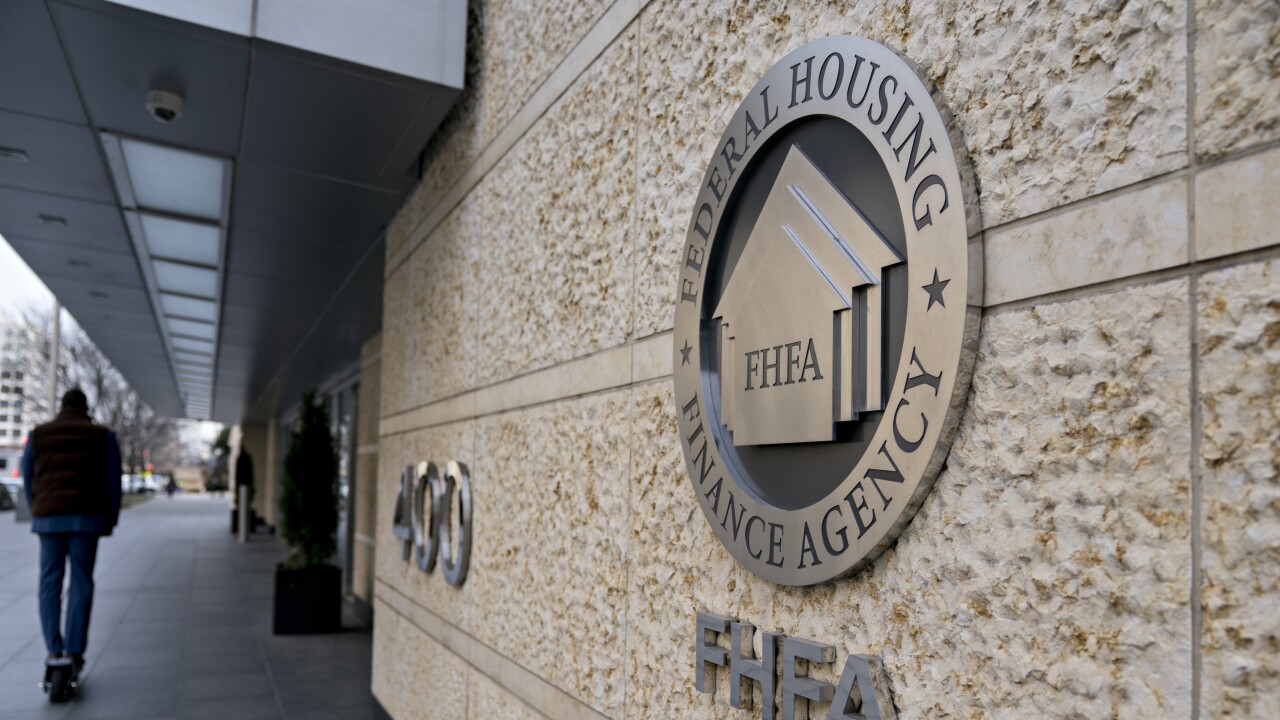Mortgage application activity declined from an early 2023 surge, as a rapid rise in interest rates kept borrowers away last week, the Mortgage Bankers Association reported.
The MBA's seasonally adjusted Market Composite Index, a measure of weekly application activity based on surveys of association members, dropped 5.7% from
"After a brief revival in application activity in January when mortgage rates dropped down to 6.2%, there has now been three straight weeks of declines in applications as mortgage rates have jumped 50 basis points over the past month," said Joel Kan, MBA's vice president and deputy chief economist.
"Both purchase and refinance applications declined last week, with purchase index at a 28-year low for a second consecutive week."
The MBA's Refinance Index decreased 5.5% week over week and came in 73.7% lower on an annual basis, with a majority of homeowners already locked into more favorable rates, Kan said. Refinances made up only a 31.8% share relative to total loan volume, falling from 32.5% seven days earlier.
Meanwhile, the seasonally adjusted Purchase Index similarly dropped 5.6% from the prior week and stood 43.6% below levels from a year ago, "as homebuyers again retreat to the sidelines as higher rates crimp affordability," Kan said.
Adding to interest rate pressures, the housing market has faced a dearth of new listings early this year, according to new reports from online brokerages HouseCanary
"The housing market took two steps forward in December and January, but has taken one step back in February, said Taylor Marr, deputy chief economist at Redfin. Marr also reported that the number of new listings in January was the lowest on record outside the start of the COVID-19 pandemic, buoying home prices.
A jump in housing costs over the year's first few weeks was evident in steadily increasing purchase-application sizes, according to the MBA. After coming in under $400,000 in early January, the mean purchase-loan amount had risen 11% by mid February, before falling over the past two weeks. The average slid 0.8% to $428,400 in the latest survey from $431,900 seven days earlier.
Average refinance sizes fell by an even greater amount, down 1.2% to $263,900 from $267,200. The overall average amount across all new applications last week came in at $376,100, representing a 0.6% decrease from $378,400.
Seasonally adjusted government-mortgage activity dropped by over 8% on a weekly basis, and the share of federally sponsored loans likewise shrank. Applications backed by the Federal Housing Administration accounted for 12.1% of total volume, unchanged from seven days earlier, but
Adjustable-rate mortgage applications, whose popularity tends to increase in an elevated rate environment, saw their share of volume up for the third straight week, accounting for 8.1% compared to 7.6% in the previous survey. The latest uptick coincides with the recent surge in interest rates, and seem likely to head higher if current trends hold.
"Data on inflation, employment, and economic activity have signaled that inflation may not be cooling as quickly as anticipated, which continues to put upward pressure on rates," Kan said.
For a third week in a row, the average contract rate among MBA lenders for the 30-year fixed mortgages with conforming balances of $726,200 or less headed higher, rising nine basis points to 6.71% from 6.62%. Points increased to 0.77 from 0.75 for 80% loan-to-value ratio loans.
The rate for 30-year fixed contract jumbo mortgages with balances above the conforming amount averaged 6.44%, unchanged from the prior week. Points decreased to 0.49 from 0.53. The jumbo average was the only rate type tracked by the MBA to not register an increase.
The contract average rate for 30-year FHA-backed mortgages rose 6 basis points to 6.45% from 6.39%, with points increasing to 1.19 from 1.16.
The 15-year fixed contract interest rate leaped 15 basis points to an average of 6.13% from 5.98% week over week. Points were unchanged at 0.93 for 80% LTV loans.
The average of contract hybrid loan rates increased, with the 5/1 ARM rising to 5.73% from 5.66% seven days earlier. Points decreased to 0.86 from 0.97.





